Against the backdrop of the COVID-19 pandemic, many non-profit organisations (NPOs) are struggling to find innovative ways to rapidly adapt while serving the community. Hoping to make a difference, several Singapore Management University students started Thrive Social Consulting to offer pro-bono consulting to NPOs amid the pandemic and beyond. Meet Esther Chong, 22, Fara Natasha, 22, Gabriel Ang, 24, and Sammie Lim, 22, who spoke to DRUSILLA QUEK about their passion to create a thriving non-profit space in Singapore.
Tell us more about what inspired you to start Thrive Social Consulting. Why the focus on the non-profit sector?
Prior to this venture, we had already been volunteering with the non-profit sector in our personal capacity, either by engaging directly with beneficiaries or running projects with them. In some cases, we helped grow ground-up initiatives within our circle of friends, serving different beneficiary groups.
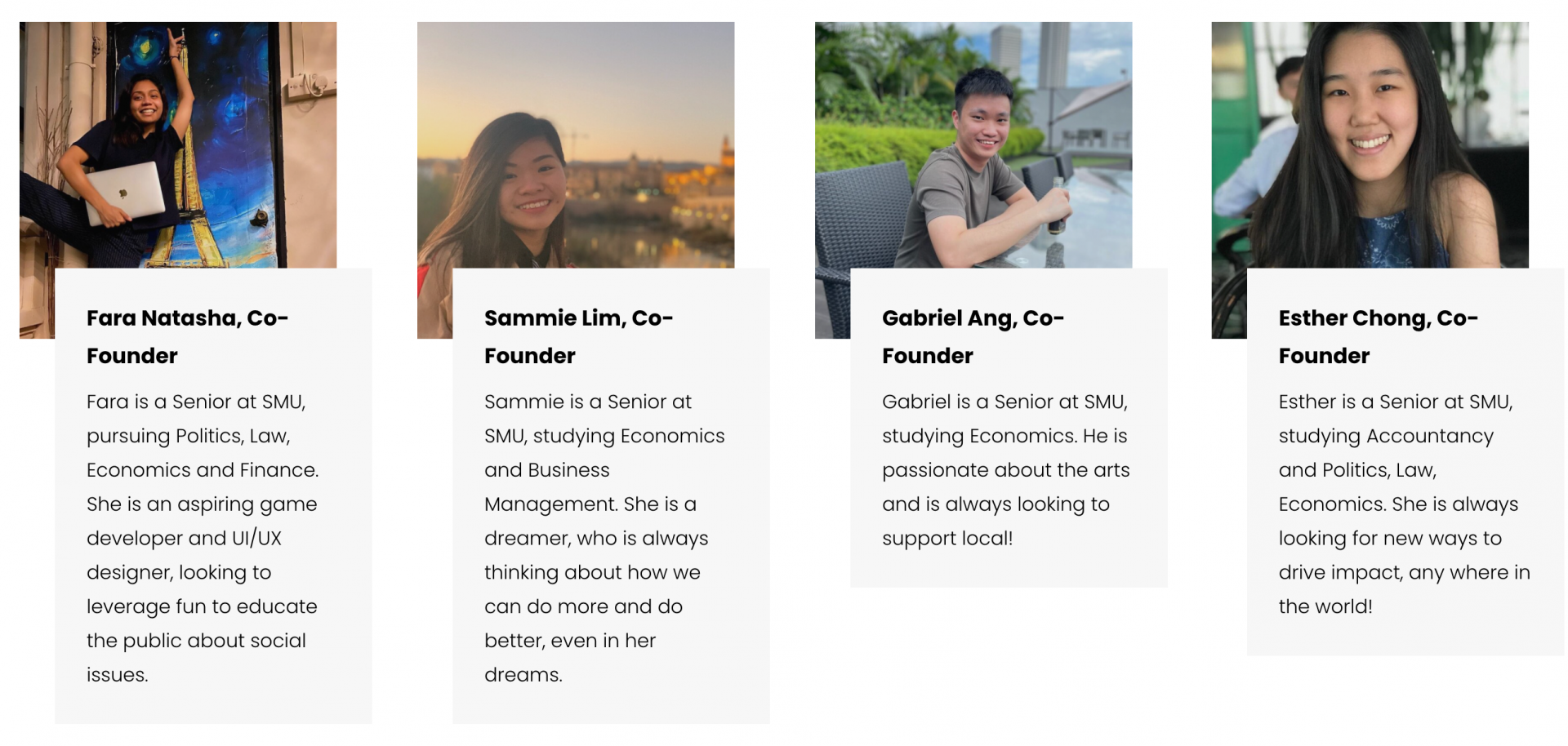
The founding team: screengrab from Thrive Social Consulting's website.
As such, we understood first hand that a society’s resilience is built on the strength of support provided by non-profits. NPOs are usually seen as the ones who are expected to support the most vulnerable—but in the wake of the COVID-19 pandemic, we also saw how much the organisations needed help. For instance, many of them had to, within a very short time, adapt their operations to accommodate safe-distancing measures, such as digitising existing engagements with beneficiaries or moving events online. Furthermore, NPOs serve different beneficiary groups, including disadvantaged and vulnerable individuals. COVID-19 disproportionately impacted many of these individuals, who in turn relied more heavily on the organisations for support. Recognising this, we wanted to find ways to help the non-profit space in this time of crisis, and beyond.
You were previously known as the COVID-19 Taskforce for Non-Profits. Why the change of name?
We initially launched the Taskforce with the intention of supporting non-profits during the Circuit Breaker period, which coincided with our summer study break. However, as we began to take on more partners, we realised two things: first, that we could do more to continue to support NPOs; and second, that what we'd started was only the first step towards creating the change we hoped to achieve for our partners. Many of the organisations we were supporting also wanted our volunteers to continue volunteering with them in different capacities, and as we spoke to many other non-profits, we realised that they face a variety of challenges that we can work together to address. Now as Thrive Social Consulting, we're well placed to work with more NPOs to co-create enduring impact.
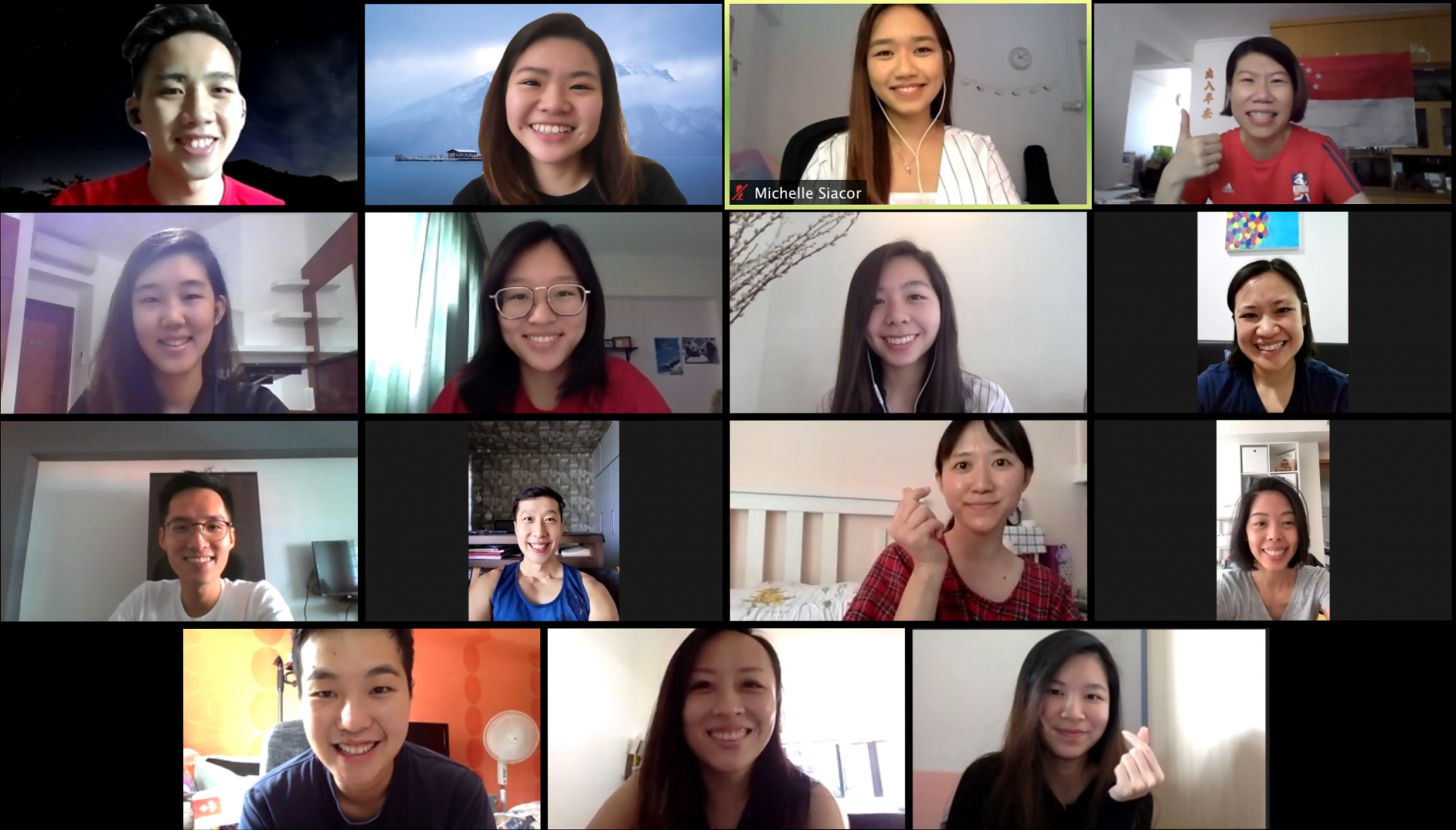
The Thrive team works with the non-profit, Aphasia SG, pictured above.
Working so closely with non-profits, what have you learned?
We are who we are today because others helped us along our journey, and we have a responsibility to pay it forward. Even before entering University, we had each been contributing to the non-profit sector through volunteering experiences and had an early glimpse into their work to serve disadvantaged groups. Now as undergraduates, we recognise even more avenues of helping, whether through community initiatives, skills-based volunteering, or by applying specific expertise.
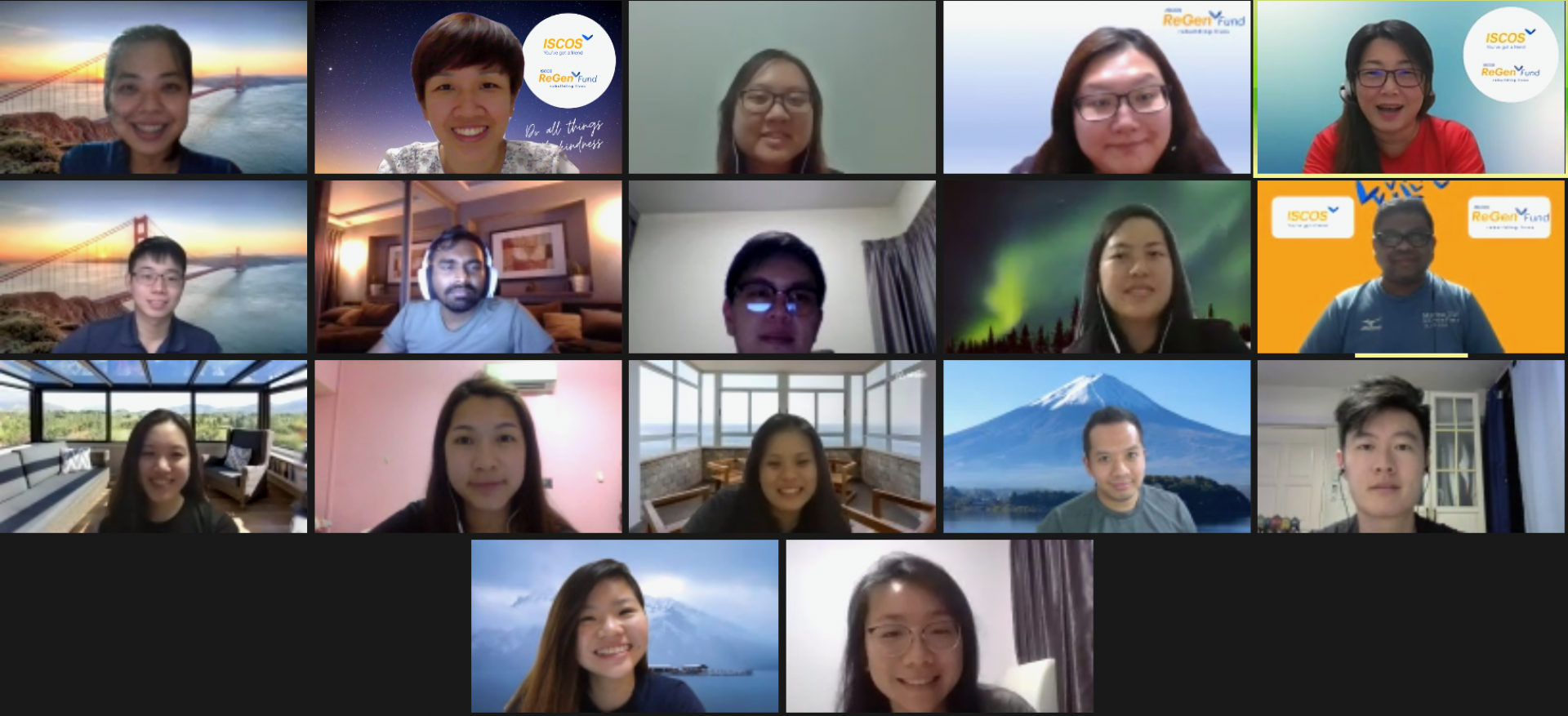
Thrive works with the ISCOS ReGend Fund, pictured above.
Is there a specific event, experience or person that inspired or motivated you in your work?
One of the biggest contributors to Thrive Social Consulting is the Executive Director of our first ever NPO partner, Karen from Lions Befrienders (LB). We'd reached out to her to find out how the organisation was coping during the pandemic, and she shared that they were working overtime to support their elderly beneficiaries, many of whom were facing increasing loneliness as a result of safe-distancing measures. LB pushed the boundaries of what beneficiary engagement looks like, partnering with various corporates and ground-ups to enable self as well as community engagement. We found the commitment that Karen and her team displayed to support their beneficiaries so inspiring—it definitely strengthened our resolve to continue supporting other non-profits like LB who go the extra mile for their beneficiaries.
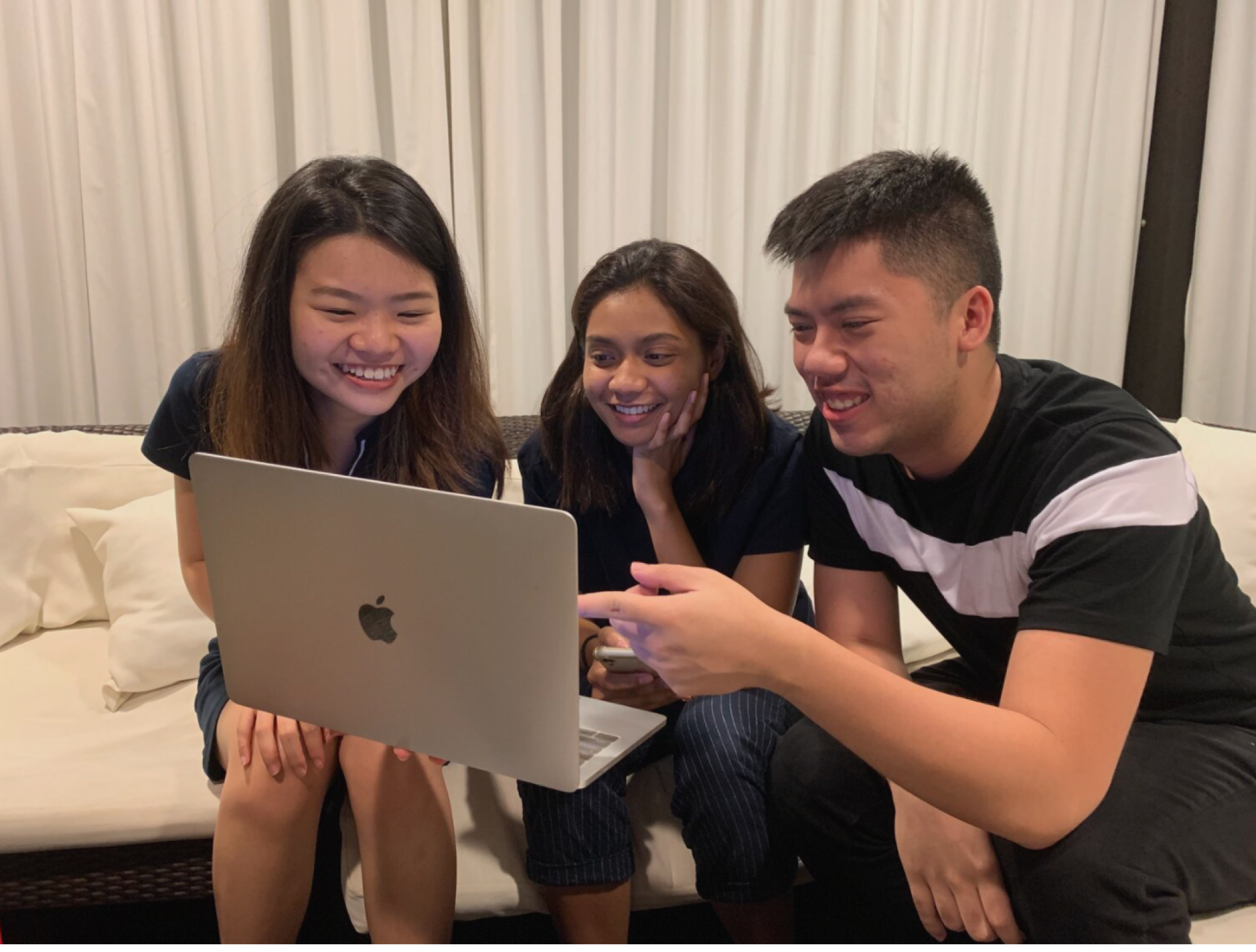
Image via Thrive's website.
Our professional advisor, Clive, who is an SMU alumnus currently working with McKinsey & Company, was also a big supporter right from the beginning. He was the one who pushed us to constantly think about how we can do better and do more to support the NPO sector, and it is because of him that we are piloting many new initiatives to support NPOs moving forward.
What challenges did you face while establishing Thrive Social Consulting and what were your key takeaways?
When we first started, many challenges centred around how to recruit and organise this entire initiative. We were very fortunate to have many friends in SMU who were equally passionate about making a difference in the social sector—some even volunteered with us. However, due to everyone’s busy schedules, there was a lot of coordination work involved and we had to figure out how we wanted our entire operational model to work. This is still something we are refining as we go along.

Some of Thrive's services; screengrab from their website.
Another challenge was finding our place in the ecosystem and positioning ourselves to make a difference. While early on we wanted to focus on helping NPOs adapt during the Circuit Breaker period, we quickly saw that where we could best add value was actually in helping them to future-proof themselves. Experts have mentioned that COVID-19 is not the real pandemic and that we must be ready for future outbreaks that have even more widespread impact. NPOs, as the key players to build resilience in the community, must therefore be poised to respond if and when the next pandemic occurs.
To date, you've engaged with over 20 non-profits. How has your team helped these organisations to adapt and navigate through the COVID-19 crisis and into today's "new normal"?
When we first started, we focused on providing our NPO partners with pro-bono consulting projects, helping them in areas like beneficiary, volunteer and donor engagement strategy. The goal was to identify a plug-and-play solution that would help them devise immediate and actionable solutions for both the short and long term. In terms of manpower, each project comprised a team of five student volunteers and a professional advisor to support the non-profit through a 10-week project cycle.
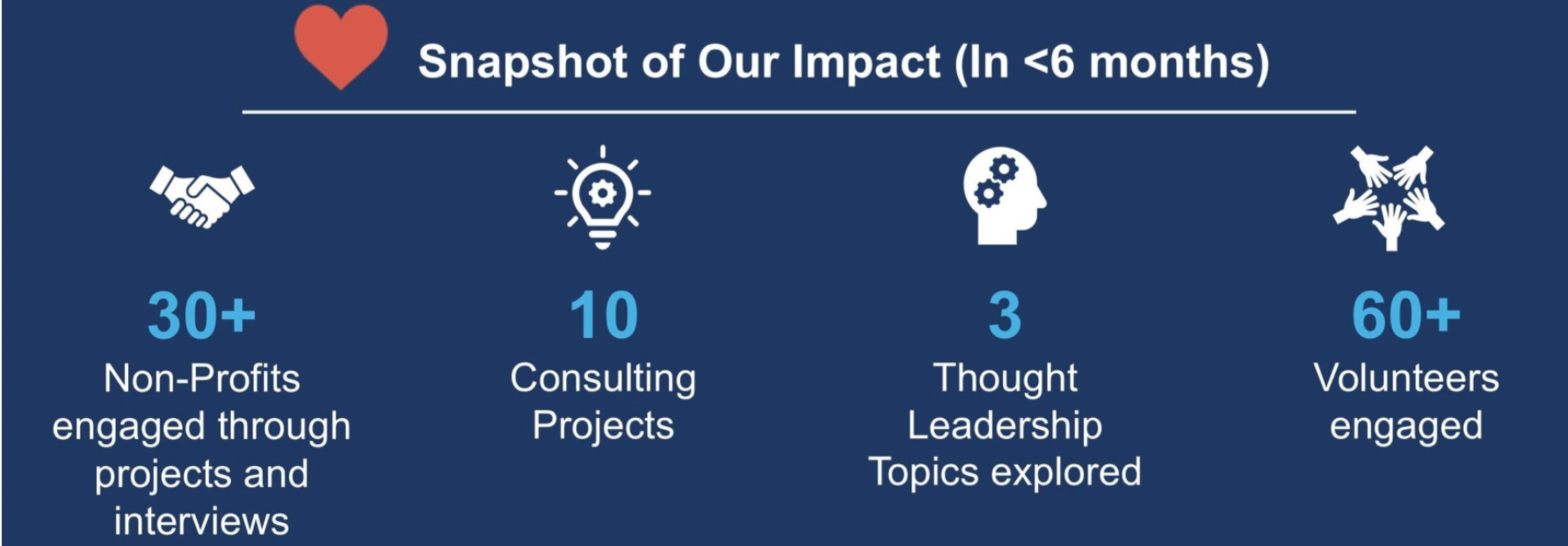
Screengrab from Thrive's website.
However, in the course of our research and strategy development work, we managed to sieve out many key insights that were relevant and impactful for the entire sector as a whole, and not only to the NPOs involved. We thus set out to launch a thought leadership piece—with the support of the National Volunteer and Philanthropy Centre (NVPC) and SMU's Lien Centre for Social Innovation—to consolidate our learnings and share high-level recommendations in terms of how the social sector can become future-proof. We launched the thought leadership piece at a webinar attended by over 220 attendees from various NPOs across Singapore, allowing us to scale our impact further.
With Singapore soon be entering Phase 3 of its COVID-19 measures, what are Thrive's next steps?
The threat of the pandemic and its effects on non-profits and their beneficiaries are still very real. This is particularly so for the organisations working with physically vulnerable groups like the elderly and cancer patients, or economically marginalised groups such as single parents and persons with disabilities. As we move into Phase 3, Thrive will continue to support NPOs in exploring new ways of engaging beneficiaries, finding new funding models and engaging volunteers meaningfully.
Beyond that, we are always looking for new ways to support the sector, beginning always with the core question: What do NPOs need? At present, we've partnered with Tableau to train our student volunteers in data visualisation and analytics, and are piloting these offerings with a number of our partners this year. We're additionally exploring new thought leadership topics such as how NPOs can further collaborate to co-create shared impact. The goal is to have more organisations work together to better serve their common beneficiaries.
Where do you see Thrive or yourselves in the near future?
Though Singapore has handled the COVID-19 pandemic quite well, as seen from the few community cases these days, the aftereffects will remain with us for a long time. NPOs have to constantly innovate across beneficiary engagement, funding models and volunteer management. For our part at Thrive, we'll continue to push boundaries alongside them and drive greater innovation in the social sector.
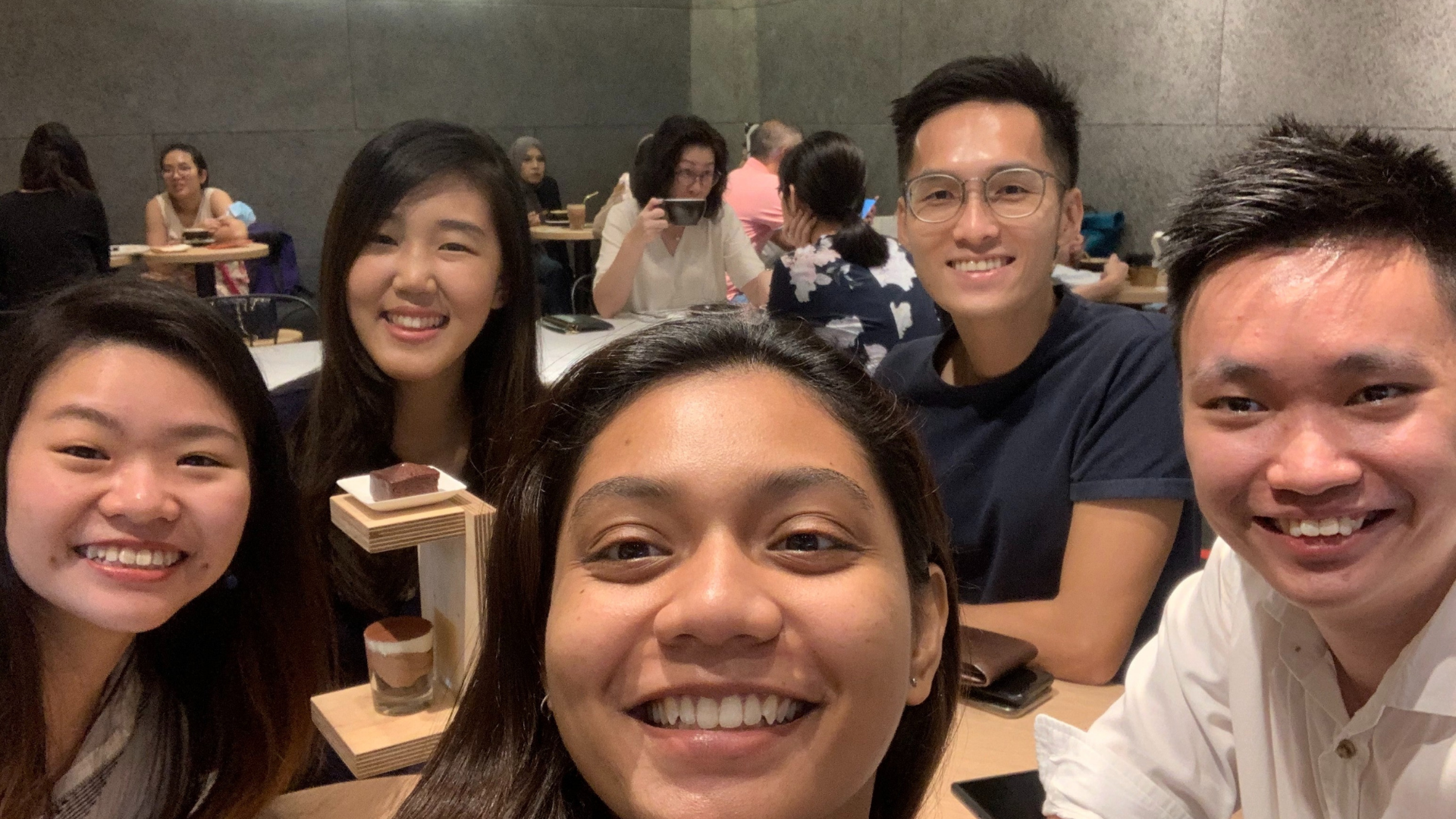
(Left to right) Sammie, Esther, Fara, Clive and Gabriel.
Images courtesy of Thrive Social Consulting.








Comments